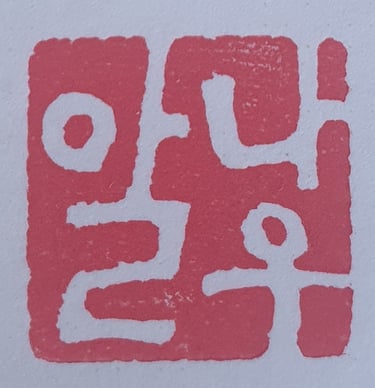Chuseok
Chuseok: the Korean harvest festival
Chuseok (추석), also called Hangawi (한가위), is one of the most important traditional holidays in South Korea. Celebrated on the 15th day of the 8th lunar month, this festival is often compared to a Korean version of Thanksgiving. It is a time when families gather to honor their ancestors, share traditional meals, and express gratitude for the bountiful harvest.
Origins and meaning of Chuseok
Chuseok is deeply rooted in Korea's agricultural culture. Historically, it marked the end of the harvest season, a period when farmers celebrated the hard work of the past year and thanked nature for its gifts. The festival symbolizes abundance and prosperity. The name Chuseok literally means "autumn eve," and Hangawi, another term for this festival, translates to "the great night of mid-autumn."
Traditional rituals and customs
The heart of Chuseok lies in ancestral rituals known as Charye (차례). During this ceremony, families pay homage to their ancestors by preparing a table of offerings filled with traditional dishes, fruits, and drinks. Family members bow and pray to thank their ancestors and ask for protection in the coming year.
Another important aspect is Seongmyo (성묘), the visit to ancestral graves. Families gather at the gravesites to clean them and offer tributes, strengthening the bond between the living and the deceased.
The cuisine of Chuseok: a feast of abundance
Chuseok is also synonymous with lavish feasts. The star dish of the festival is Songpyeon (송편), a rice cake filled with red bean paste, sesame seeds, or chestnuts, steamed on a bed of pine needles. The shape of Songpyeon, resembling a half-moon, is symbolic, representing the belief that a waxing moon brings good fortune, unlike a full moon, which wanes. Making Songpyeon with family is a cherished tradition, and it is said that those who shape beautiful rice cakes will have beautiful children.
In addition to Songpyeon, other traditional dishes are essential during Chuseok. These include Jeon (전), savory pancakes made with vegetables, fish, or meat, as well as seasonal fruits like pears, apples, and jujubes. The meals are generous, reflecting the abundance of the autumn harvest.
Festive games and entertainment
Beyond the meals and rituals, Chuseok is also a time for games and entertainment. Historically, various games and dances were organized to celebrate the occasion. One of the most famous is Ganggangsullae (강강술래), a circle dance often performed by women. Under the full moon, they hold hands and sing while dancing in a circle. This ritual, once used to invoke a good harvest, is now a joyful dance symbolizing unity and collective celebration.
Ssireum (씨름), traditional Korean wrestling, is also an essential part of Chuseok. This combat sport, where wrestlers try to bring their opponent to the ground using strength and technique, is not only a competitive sport but also a way to strengthen community ties.
Chuseok today: tradition and modernity
In modern times, Chuseok remains a family holiday and a time of sharing, though the way it is celebrated has evolved. With increasing urbanization, many Koreans live far from their families. The mass exodus, or great annual migration, sees millions of people traveling across the country to return to their hometowns. Roads, train stations, and airports are crowded as everyone wishes to spend these precious days with their loved ones.
In cities, cultural events are organized for those who cannot join their families. Reenactments of traditional rituals, exhibitions, and concerts allow everyone to partake in the festive spirit of Chuseok.
Chuseok and the hallyu wave
With the growing influence of Korean culture worldwide, Chuseok has also gained international attention. More and more people outside of Korea are becoming interested in this holiday, particularly through media, dramas, and K-pop. Some cities around the world, home to large Korean communities, now organize Chuseok festivities, allowing non-Koreans to discover this rich and warm tradition.
Chuseok, an essential celebration
Chuseok is not just an agricultural festival but a key moment for Korean families, uniting tradition, gratitude, and celebration. Whether through ancestral rituals, lavish feasts, or joyful dances, Chuseok is a time of gathering and festivity. It’s an invitation to savor the present while honoring the past, with sharing and gratitude at the heart of all activities.
So, whether you're in Korea or elsewhere, let yourself be carried away by the joy of Chuseok, and perhaps try making some Songpyeon to make this celebration even more authentic!

